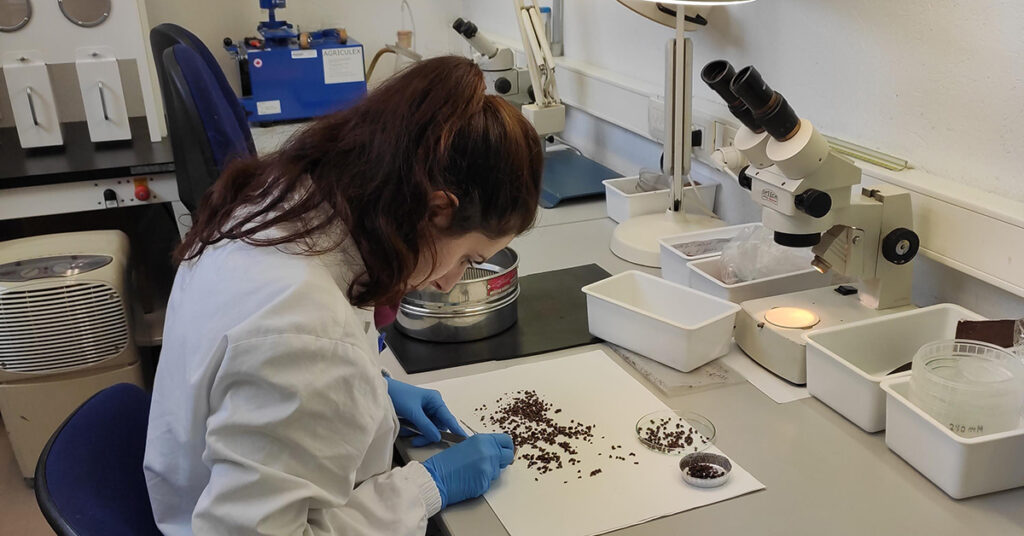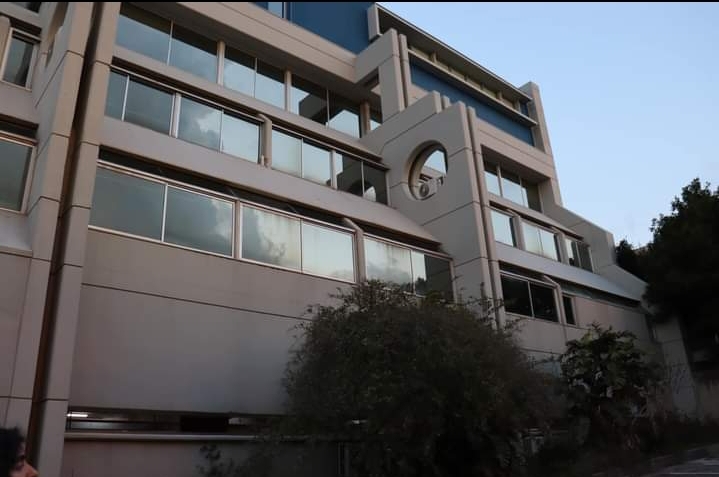Lebanon has been experiencing a multifaceted crisis for several years. The economy is collapsing, the banking system is almost non-existent, and politics is paralyzed. In this destabilizing context, scientific research, already fragile, finds itself on the brink of a precipice. Scientists and research institutions stand together, seeking and sometimes finding ways to continue their studies and work.
Lebanese research institutions, once pillars of knowledge and innovation, are now under threat. The crisis of 2019 dealt a severe blow to scientific research. Allocated budgets have been reduced, up to 33 times less, and the devaluation of the Lebanese pound has not helped (1,500,000 pounds were equivalent to 900 euros before 2019, now it's less than 15). Although a slight recovery was observed in 2023-2024, with budgets reaching 50 to 75% of their previous levels for private institutions, the situation remains critical for public establishments, which receive only 10 to 20% of their previous funding.
This decrease in resources has led to a massive exodus of researchers. It is estimated that 15 to 20% of experienced researchers have left the country, while over 50% of young researchers have chosen to pursue their careers abroad. This brain drain has created a void that is hard to fill, especially since the job market in Lebanese scientific research was already limited before the crisis, with fewer than 20 active institutions in this field.
This has also had an impact on scientific vocations. Younger generations are increasingly less likely to consider a career in research, given the instability and limited prospects offered by this sector in Lebanon. Positions left vacant by departing researchers are rarely filled, and many laboratories have been closed or are operating with reduced staff.
The CNRSL, engine of resilience
Despite the numerous challenges, the National Council for Scientific Research in Lebanon (CNRS-L) is reinventing itself as a pillar of resilience for Lebanese scientific research. Since 2022, under the leadership of Tamara el-Zein, its new Secretary-General, the CNRS-L is redefining its mission to adapt to the current crises. "Priority is therefore given to managing this crisis with as little damage as possible," she explains, emphasizing that the work of CNRS-L now relies on three strategic axes: funding, valorization of existing research, and collaboration with the private sector.
In terms of funding, Tamara el-Zein acknowledges that "difficult choices must be made." "We can no longer finance all research," she says. "We must be selective, as it is imperative to maintain a certain pace in research. Stagnation means regression." For the first time since its establishment in 1962, CNRS-L is defining scientific priorities through a collaborative process involving decision-makers from major state institutions (ministries, etc.) to assess their current and future scientific needs. Through these consultations, it aims to fund projects that address national challenges and to encourage policymakers to utilize its expertise in planning and decision-making on public policies. It is based on these results that CNRS-L is launching the Research Grants Program for universities and research centers for 2024.

In order to valorize research, the Secretary-General emphasizes the importance of going beyond industrial application, and "extending the transformation of this research into knowledge that would serve the development of public policies," adding that interdisciplinary is crucial to address national challenges. She points out that "countries that have based their public policies on scientific research are the ones that have best managed crises."
Finally, Tamara el-Zein emphasizes the need to structure centers of excellence and to create bridges between the economic, academic sectors, and citizens. "These bridges are rare in Lebanon, and we can only observe the damages it causes in the country at all levels," she notes. She also emphasizes the responsibility of being accountable to citizens, whose taxes partly finance the research. "We should be able to show them the results of this research," she explains.
Private universities, catalysts of innovation
On their side, the private universities in the country, such as Saint Joseph University (USJ) and Lebanese American University (LAU), demonstrate remarkable resilience by maintaining and developing their scientific research. These institutions, aware of their crucial role in Lebanese society, have adapted their strategies to continue educating the researchers of tomorrow and actively contribute to the country's reconstruction.
At USJ, the priority is to create an environment conducive to research despite financial challenges. "We have been able to allocate a considerable budget from our own funds to finance research projects, as well as doctoral scholarships," explains Richard Maroun, Vice-Rector for Research. The university relies on international funding, including from the European Commission, the French Development Agency, and the Francophonie University Agency, to continue equipping its laboratories with cutting-edge technologies and providing access to essential bibliographic resources for teacher-researchers. At the same time, USJ is working to enhance student engagement in research programs. A three-year plan has been presented for 2024-2026, aiming to support researchers and index the university's journals for better international visibility.
The economic challenges are not the only obstacles. Nancy Fayad, an assistant professor in microbial genomics at LAU, has seen her career shaped by successive crises. In 2019, the protests in Lebanon prevented her from accessing her laboratory to continue her thesis. In 2020, the lockdown in Belgium, due to the COVID-19 pandemic, once again halted her laboratory work. However, she managed to bounce back by focusing on bioinformatics, which allowed her to publish an additional scientific article. "Research in Lebanon suffers from a dual crisis: the international lack of funding for basic research and the local economic and financial crisis," she observes. To support its researchers, LAU has established an emergency fund guaranteeing a minimum level of activity in its laboratories. A solution that helps maintain the necessary conditions to attract vital external funding.
A united and resilient scientific community
To overcome these challenges, collaborative initiatives are emerging supported by associations, foundations, and networks of researchers who combine their resources and knowledge. These efforts include the establishment of mentoring programs, aiming to support and develop young talents in this challenging environment.
To highlight and support the achievements of Lebanese researchers, the National Council for Scientific Research is relaunching its Annual Scientific Excellence Award. This prestigious award will be granted in four fundamental areas: basic sciences and engineering, medical and biological sciences and public health, agricultural and environmental sciences, and humanities and social sciences. In addition to these distinctions, a "Scientific Career Award" will be given to seasoned researchers who have made major contributions to research.
These awards aim not only to honor these researchers but also to encourage high-quality, relevant research oriented towards the needs of the country. These initiatives, combined with strong collaboration and structured mentorship, are essential to ensure the sustainability and development of scientific research in Lebanon, even in times of crisis.

